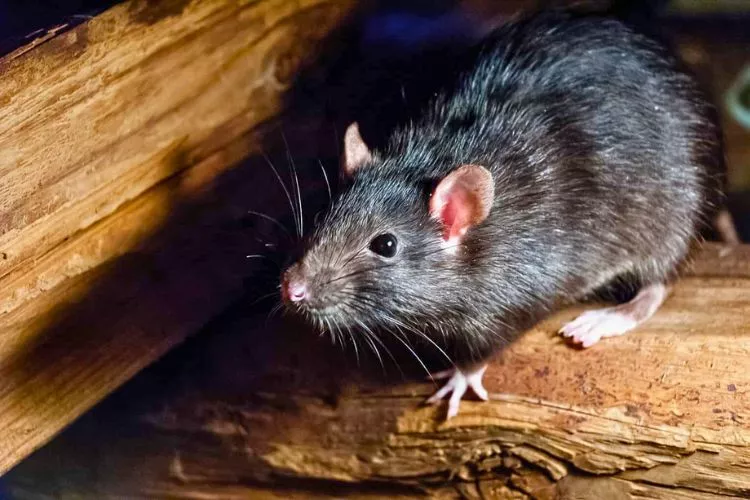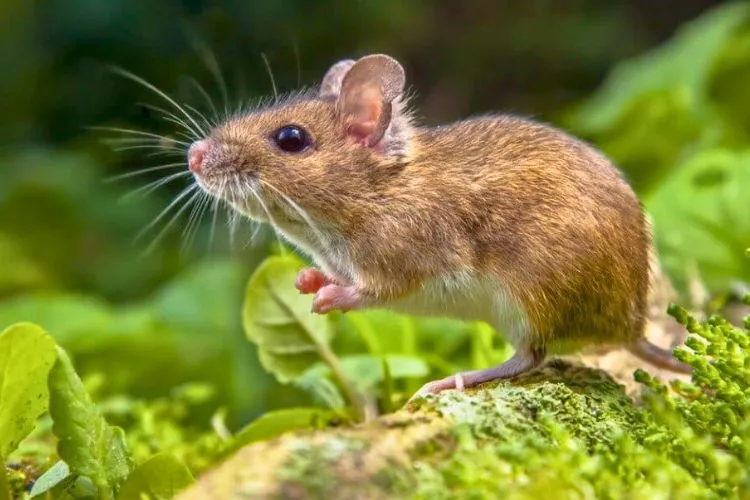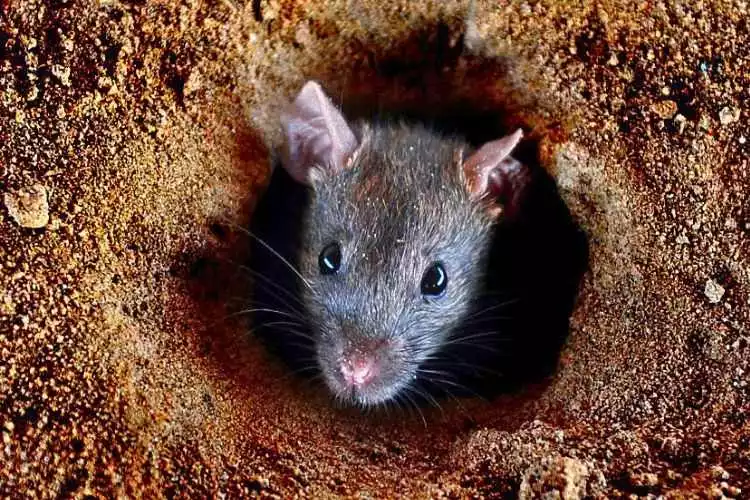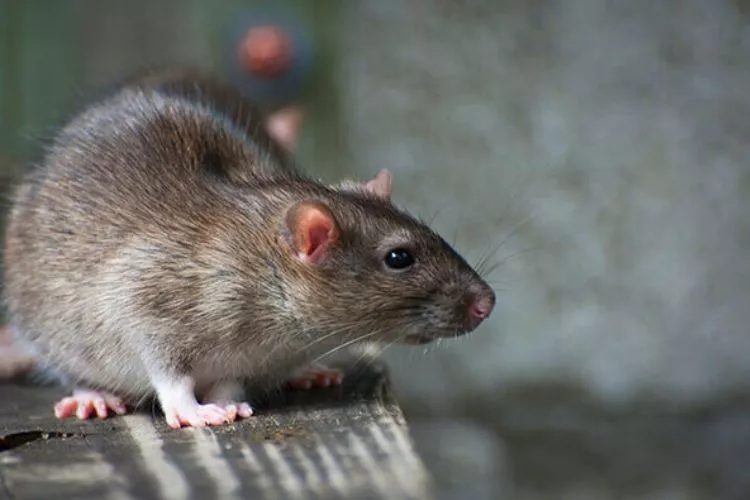In the battle against unwelcome rodents, homeowners have tried countless methods to deter rats from invading their sanctuaries. One such unconventional solution that has gained traction is using bleach. But does this common household cleaning agent truly have the power to keep these pesky intruders at bay?
Here I took a deeper look into the question: does bleach keep rats away? Weighing the pros and cons to determine if this seemingly simple solution lives up to its reputation or if it’s merely a myth that needs to be debunked.

Does bleach keep rats away?
While bleach is a common household cleaning agent, its effectiveness as a rat deterrent is debatable. Some people claim that rats dislike the smell of bleach and will avoid areas where it has been applied. However, there is no scientific evidence to support this claim. Studies have shown that rats are adaptable and can become accustomed to various smells, including bleach.
Furthermore, using bleach as a rat deterrent can be risky as it is a toxic substance that can harm humans and pets if ingested or inhaled. Additionally, applying bleach to surfaces can damage them and cause discoloration.
Instead of relying on bleach, it is recommended to take proactive measures to prevent rats from entering your home in the first place. This includes sealing gaps or holes in walls or foundations, keeping food in sealed containers, and eliminating potential nesting areas such as piles of debris or clutter. In severe cases, it may be necessary to call a professional pest control service.
Does bleach kill rats and mice?
While bleach is a common household cleaning agent and disinfectant, it is ineffective in killing rats and mice. Firstly, rodents have a high tolerance for toxic substances and can often survive exposure to bleach. Secondly, even if bleach were lethal to rodents, it would not be a humane pest control method.

Using bleach to kill rodents also poses a danger to humans and pets. Inhaling bleach fumes can cause respiratory problems, and ingesting bleach can be toxic and even fatal. Using bleach as a rodent killer can also damage surfaces and cause discoloration.
Instead of using bleach, it is recommended to use humane pest control methods, such as trapping and releasing rodents outside. In severe infestations, it may be necessary to call a professional pest control service that can provide safe and effective solutions to rodent problems.
Can I pour bleach in a rat hole?
It may seem like a viable solution to pour bleach in a rat hole, it is not recommended for various reasons. Firstly, bleach is not an effective method for deterring or killing rats. Moreover, pouring bleach in a rat hole will not address the root cause of the infestation.
Using bleach also poses risks to people, pets, and the environment. Inhaling bleach fumes can cause respiratory issues, and bleach can contaminate soil and water sources, harming plants and wildlife. Also, bleach can damage surfaces, materials, and structures where the rat hole is located.

Instead of pouring bleach in a rat hole, focus on preventive measures like sealing gaps and holes in your home, eliminating food sources, and removing potential nesting spots. If the rat problem persists, consider using humane traps or contacting a professional pest control service to safely and effectively address the issue.
What smell do rats hate the most?
Rats have a highly developed sense of smell, and certain strong odors can effectively repel them. While there is no universally agreed-upon smell that rats hate the most, some common scents known to deter rats include:
- Peppermint oil: The strong scent of peppermint oil is believed to be unpleasant for rats and may help keep them away. Soak cotton balls in peppermint oil and place them in areas where you suspect rat activity.
- Ammonia: Rats dislike the pungent smell of ammonia, similar to the odor of their predators’ urine. Mixing ammonia with water and applying it to surfaces can help deter rats; however, be cautious, as ammonia is toxic and can cause irritation when inhaled.
- Mothballs: The distinct smell of mothballs, which contain naphthalene, can also effectively repel rats. Place mothballs in areas where rats are likely to nest or feed.
- Eucalyptus oil: Like peppermint oil, eucalyptus oil has a strong scent that rats find repulsive. Apply eucalyptus oil to cotton balls and place them in rat-prone areas.
Keep in mind that these scents alone may not eliminate rat problems. Combining them with preventive measures, such as sealing entry points and removing food sources, will yield more effective results in controlling rat infestations.
How do you get rid of rats fast?

Getting rid of rats quickly requires a combination of proactive measures, effective methods, and, in some cases, professional assistance. Here are some steps to help you eliminate rats efficiently:
- Identify rat activity: Look for signs like droppings, gnaw marks, nesting materials, and grease marks along walls. Locate the areas where rats are most active to target your efforts.
- Seal entry points: Inspect your home for gaps, holes, and cracks that rats can use as entry points. Seal them using steel wool, caulk, or metal sheeting to prevent further infestations.
- Eliminate food sources: Rats are attracted to readily available food. Store food in airtight containers, clean up crumbs and spills, and secure garbage cans with tight-fitting lids. Remove pet food and water dishes overnight.
- Use traps: Snap and live traps are effective methods for catching rats. Bait the traps with peanut butter, bacon, or dried fruit, and place them in areas with high rat activity. Check and empty traps regularly.
- Try rodenticides: In severe infestations, using rodenticides may be necessary. Be cautious, as rodenticides can harm children, pets, and non-target wildlife. Follow the label instructions carefully and consider using tamper-resistant bait stations.
- Maintain cleanliness: Regularly clean your home, remove clutter, and trim overgrown vegetation around your property to eliminate potential nesting and hiding spots for rats.
- Seek professional help: If the rat infestation persists or is widespread, contact a pest control service. They can provide an integrated pest management plan to effectively and safely eliminate rats from your property.
Remember that patience and persistence are key when dealing with rat infestations. Implementing these measures can help you get rid of rats quickly and prevent future infestations.
You May Also Read: How to Collapse Gopher Tunnels | Killing Moles with Marshmallows
Conclusion:
In conclusion, while bleach may initially seem like an effective solution for repelling rats, its overall efficacy is limited and comes with potential risks. Rats are resilient creatures that adapt to harsh conditions, making bleach an unreliable deterrent. Furthermore, using bleach poses health and environmental hazards, making it an undesirable option. It is advisable to focus on preventive measures, such as sealing entry points, eliminating food sources, and employing safe and proven methods like traps or professional pest control services to effectively manage rat infestations.
